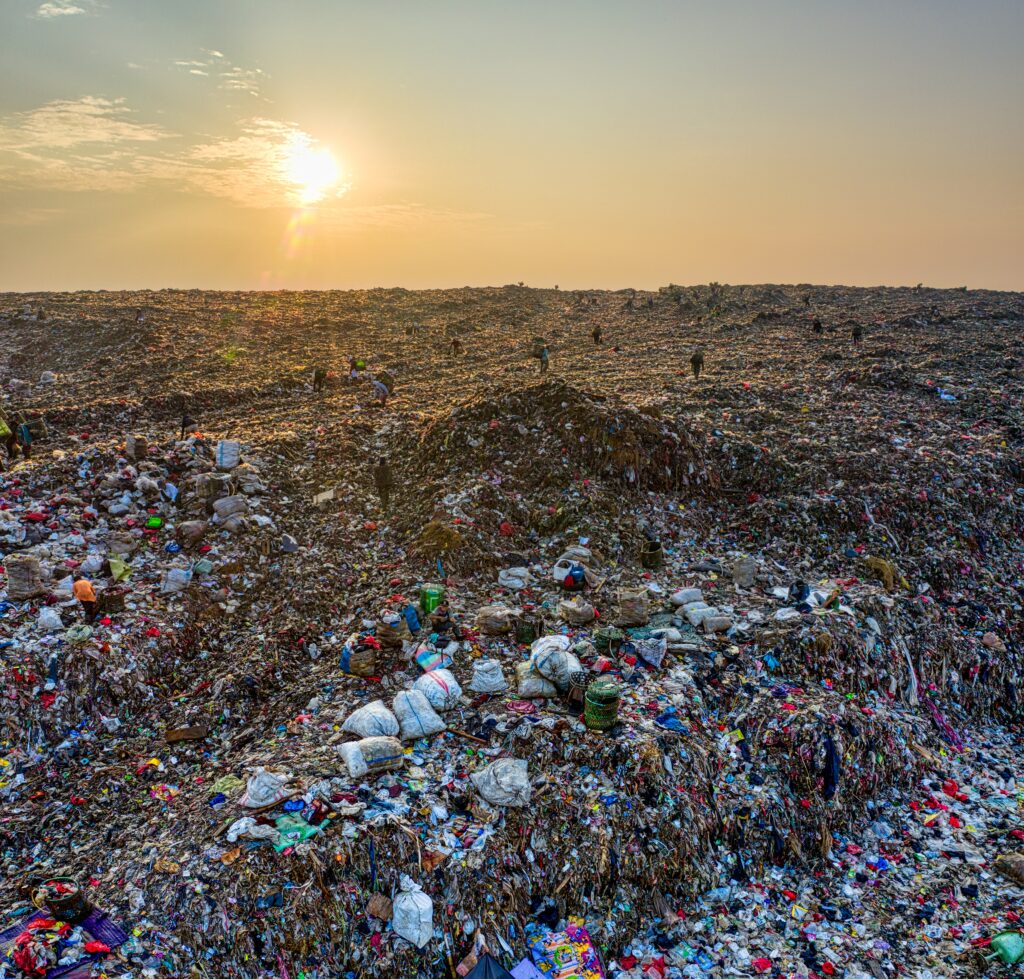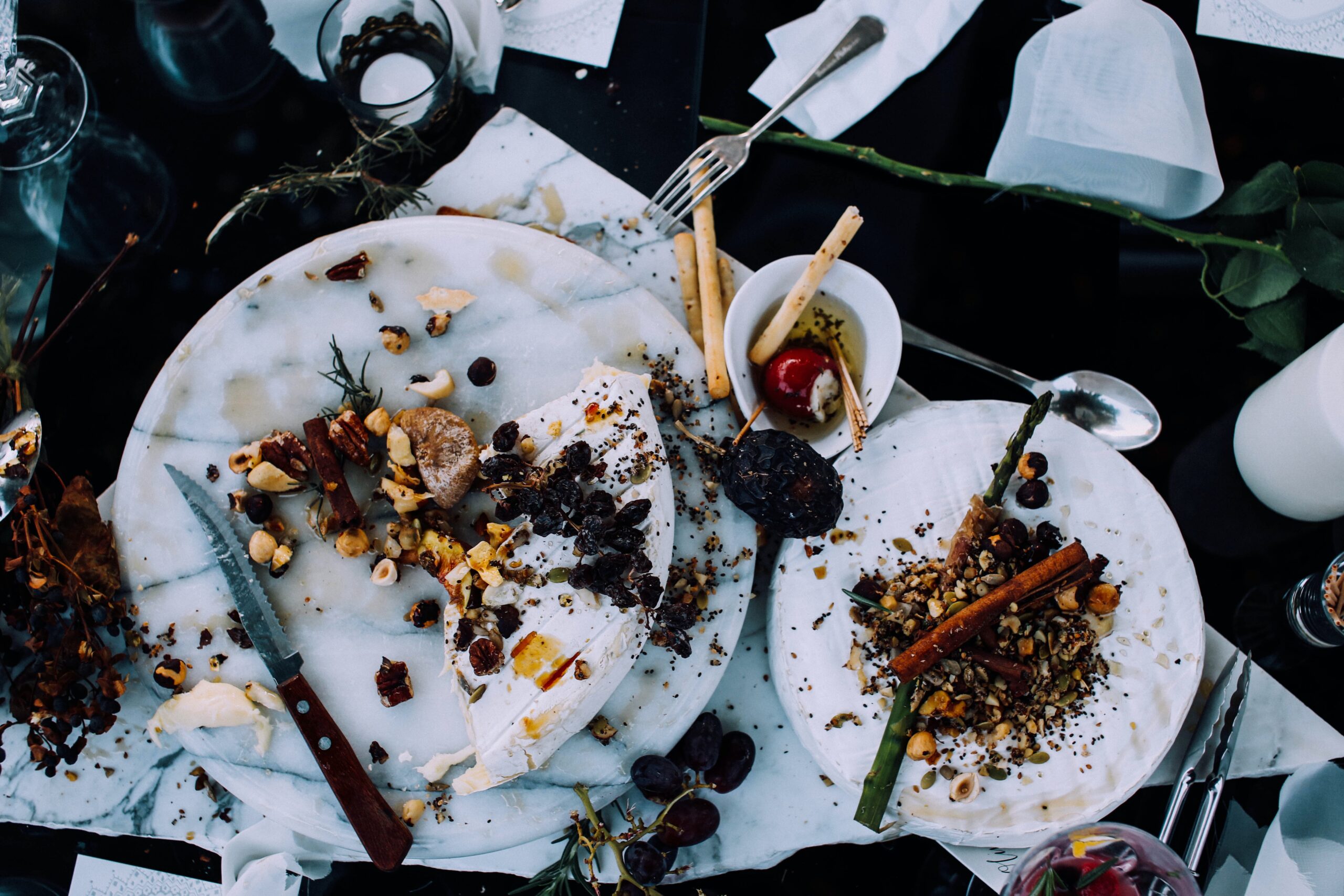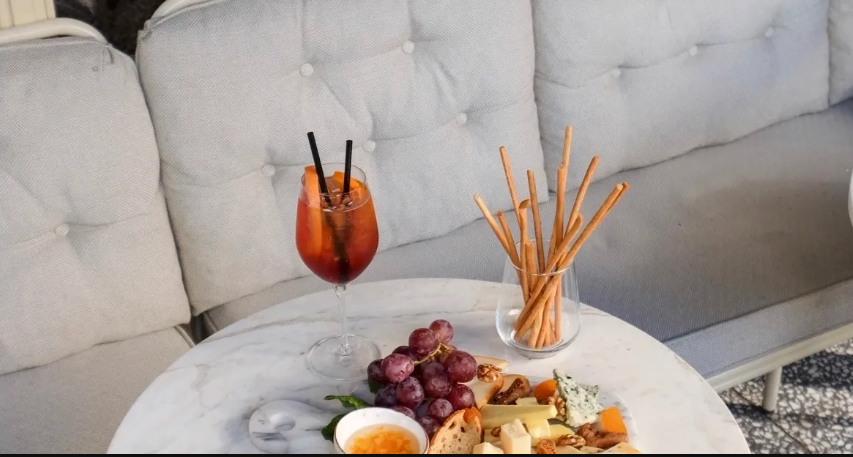Words by Nikolaj Lenz | Image by Rachel Claire
Plastic – I hate plastic but I need it. Single-use plastic, on the other hand – that will get my juices boiling.
Yet plastic can help us and even be an ally in reducing food waste and therefore help against methane release. Research on the benefits of plastic use from the UK gives us an example that goes like this – using just 1.5g of plastic film to wrap a cucumber can extend its shelf life from 3 days to 14 days. In further retail research, selling grapes in plastic bags or trays reduced the in-store wastage of the grapes by 20%. Reducing the chance of the grapes being mindlessly tossed into landfills. You see, I fear methane release from landfills more than I abhor mindless convenient plastic use. Well, I am not done with plastic yet – let me explain. Transport of food stored in plastic, being less heavy than glass, wood or cardboard – means the energy needed to transport them is lower; meaning lowering the carbon footprint of food miles simply by having a lower weight.
Recyclable plastic – we ought to be aware of this too. We must understand that this depends on costly and mechanized infrastructure, which very often is not in place to re-process nor recycle the plastic – so, off it goes to landfills.
Beware of the acts of industrialized green-washing. The term “biodegradable” has been used loosely but it truly doesn’t mean totally and completely 100% biodegradable – it often means “to a certain extent…”
Plastic production will soon have a higher carbon footprint than our food production, a rather horrible thought to add to this now. How are we able to affect our sustainable actions? Wherever we turn and research, there are implications to whatever we want to do or implement. There seem to be no silver bullets to help us out in one shot.
Here in our kitchen, we commit man-hours to wash and dry all plastic containers that we do have, as well as ziplock bags and vacuum bags. We avoid single-use plastic wrap almost like we avoid anti-vaxers. Meanwhile, we source for a credible and committed network or community that is engaged in plastic recycling.
We have surrendered to the fact that plastic is better than no packaging. As it helps us with hygiene, extends shelf-life and retain freshness and nutrients in the food we prepare.
Multi-use chemical-free plastic equipment we do accept and use – with a healthy dose of scepticism and ongoing research towards the leaking chemicals found in some plastic brands.
Woke chefs cooking sous vide, dream of wood-fibre or mycelial based bag solutions so we can switch to this faster than we can yell the favourite obscene word during a busy service.
I’m often wondering, if the fact that plastic is a by-product from the petrochemical industry. That could be the reason – we have yet to see substantial solutions created from other natural sources? Who knows? Perhaps, it’s time to ponder a conspiracy theory here. Could it be that the petrochemical industry doesn’t care about us or our health or the planet?
Maybe they are purely profit-driven? Could that be the truth?
What I despise way more than plastic is industrialized farming and all the blatantly profit-driven madness. Here’s to mention a few key problems I have with them, and in no particular order :
* Mono-crop fixation, pesticides, chemical fertilisers & CAFO’s – Concentrated Animal Feeding Operations – which are abhorrent in their very existence.
* It is complicated madness for us chefs to comprehend how bad these things are. So many chefs just give up trying to grasp the issues and go back to yelling at their staff instead.
* No one working in these industries is the evil James Bond villain petting their white cats.
But as the saying goes – “It is difficult to get a man to understand something, when his salary depends upon him not understanding it!” Human beings do not do change very well, even when our lives depend on this change.
We want to do something but we don’t know how or what. Chefs, artisan producers and foodies need to step up together. We need to unite in well-handled and well-directed anger and fury.
Quoting Michael Pollan, the author of Omnivore’s Dilemma, “We are what we eat, and we are also what we eat, ate too”.
We now have to fight nail and tooth for each sustainable step that comes before and after the food we choose to eat and serve. Free-range animals in their season have a lower carbon footprint than meat from other animals not in season – simply because the animal eats grass in the season where it is, rather than other feed grown elsewhere and then transported to the animal for food.
All of us, carnivores and vegetarians alike, share some food-mile carbon footprint but plant based-eaters are several hundred plus points ahead of carnivores. We know that food-miles only take into consideration the actual action of transport. Like local trucks rumbling and smoking along potty roads versus modern ship transport from reputable shipping companies. Some of these shipping companies are working on power to the x-energy conversion to power their newest ships. By the way, let’s be impressed when this covers their entire fleets and not just a few vessels.
It can be quite hard to try to calculate the mile-to-mile comparison of trucks versus ships. It is easier with air-flown food – the carbon footprint per calorie is much higher. Leading some chefs to decide those are best avoided.
These aside, let’s focus on the biggest issue.
Food waste is the biggest direct climate threat we face at present. It stares us, chefs, in the eyes every day and too few of us even know this.
Scraping your leftover food from your plate into the garbage is factually damaging the planet and the future of our civilization. The scraps, which you never got around to eating end up in landfills where they rot, along with so many other foods.
As food waste rot, it emits methane, which is many times more harmful in the short-term to our climate than carbon dioxide. We have well, less of a decade to stop this methane – less than ten years – maybe six or perhaps even three years! Imagine a doctor giving you this prognosis along with a plan to fix it. That would be easy to mentally grasp and decide an action plan to target, to help your survival.
But who are we up against; ourselves or other people? It is so intangible. How do we change inertia and ignorance?
Right now our immediate evil “Bond villain” is precisely this food waste leading to methane release.
Let me repeat that :
METHANE RELEASE FROM FOOD WASTE!

Once we look into these things, we cannot be blamed for feeling overwhelmed and the need for a community. It takes more than a village to save the planet!
We may research. Look for knowledge and look for inspiration. Some chefs use a lot of time online and on social media. This leads us to one of the more ridiculous obstacles to saving the planet quickly, that we have to become aware of. Almost all food-related climate change discussions have been turned into issues about meat-eating vs veganism. Essentially a load of food-culture arguments, all about which diet we self-identify with.
Surely there are many valid conversations to engage about here, but they do not at all cover the whole of the problem we face. It creates an illusory notion that climate change is merely a matter of opinion and ideology – a food-culture war of words, per se.
You may have an opinion and foodie identity, but do not let that stop you from multi-tasking your way to a better planet. Let’s return to our well-directed fury and rage. So, we are motivated to go beyond our emotional identity obstacles and instead focus on finding shared targets and supporting rational collective climate actions.
Worryingly, we know, that when we have public and cultural controversy, politicians will avoid getting involved at all costs. A polarized public opinion is a kryptonite for (most) politicians. Other politicians, the actual evil James Bond villains, may exploit this emotional trigger and engage in matters factually unrelated to the climate crisis we face – every day of the remaining three, five, seven or nine years that we have left.
In the time we have before, we no longer can turn this self-caused existential threat around. We have an urgent angry but well-directed Woke Foodie Village to create – a community to be a part of and in the case of us chefs, true circular food system to build and support.
The first task is fighting food waste before and after our guests sit down for dinner. The second battle, alongside this, is to eliminate the erroneous idea that convenience has any merit at all in true professional and sustainable kitchens.
Saving the planet leaves no time for convenience anymore. Hard work is here. No one gets into a lifeboat conveniently. And we now have to create them first.






